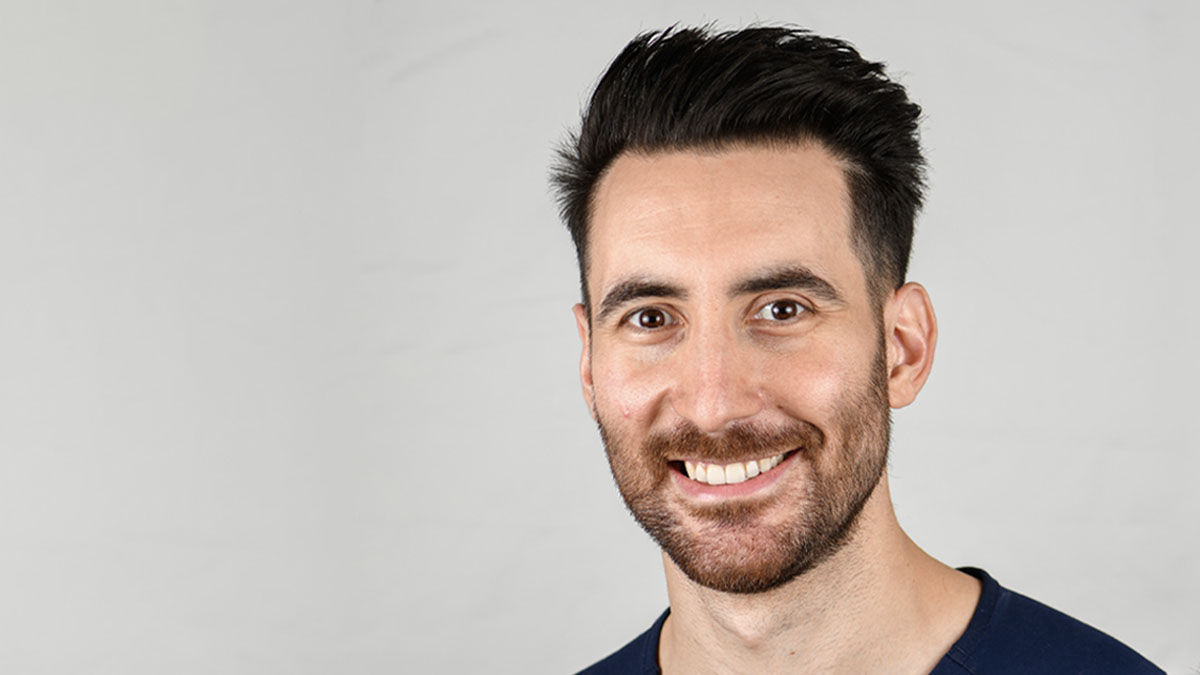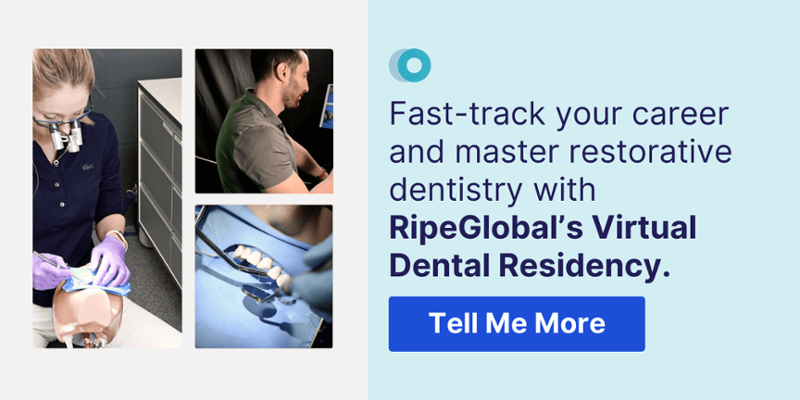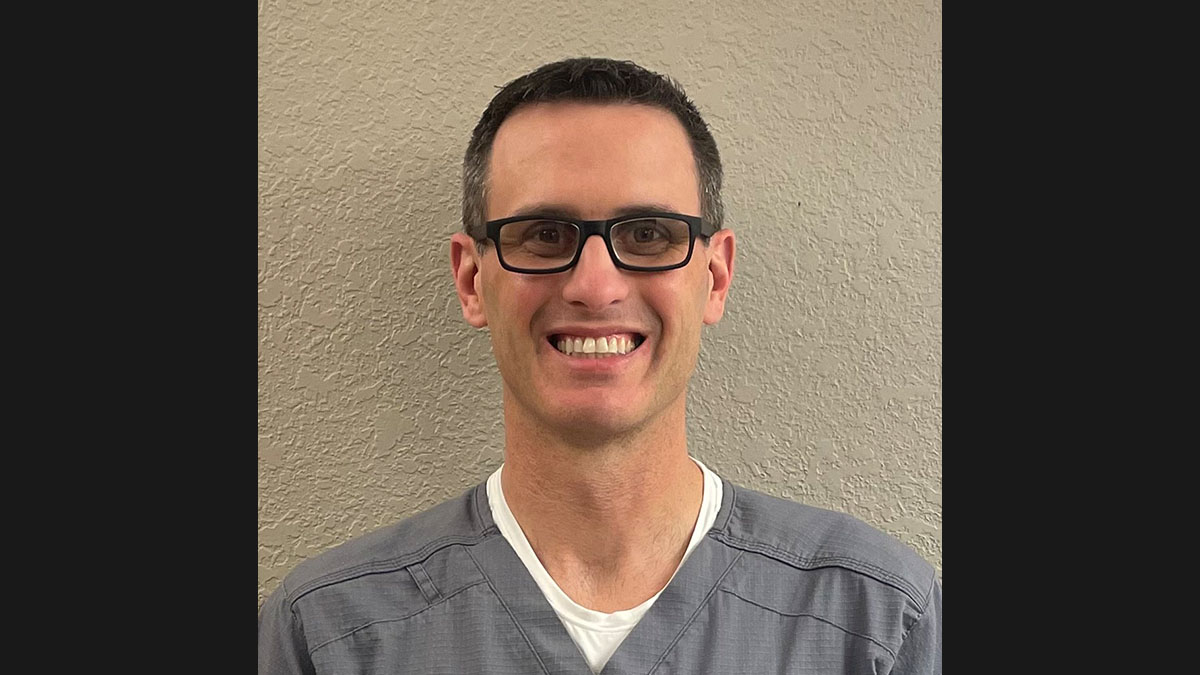"When you learn how to do a single crown right you will instantly become a better dentist," said Dr Michael Frazis. "Then when you are ready to scale up to doing 2, 3 - or even a full arch - you won’t bring the mistakes that might have been hidden in your technique or strategy of doing that single crown."
Dr Michael Frazis is one of RipeGlobal's most popular educators in the Fellowship in Restorative Dentistry. He is an expert in restorative implant and digital dentistry.
"Time doesn’t multiply evenly when you increase the number of crowns you work on in one sitting," he added. "It’s more efficient. The teeth sit neater and you can achieve a more aesthetic outcome when you work on multiple crowns at one time.
However if you have made an oversight in every crown - if there is one aspect of your otherwise faultless regime of doing crowns - then it does take the amount of time to repair one crown and multiply it by the number of crowns you have just built - which is a long time and can itself present a whole can of wormy issues."
Michael Frazis scales crown preps effortlessly from single crown to multiple crowns, executing each step effectively so that mistakes aren’t made. The result is a perfect row of preps completed in a fraction of the time it would take to do one complete crown prep followed by another complete crown prep. 
I asked Michael Frazis about the challenges of doing preps, and the advantages of doing them fast.
What are the challenges new dentists can face when doing preps?
There can be issues in the transition from dental school dentistry to clinical dentistry.
You know how it goes in school:
- You do part of the prep.
- The educator will mark it off.
- And repeat: do, get checked, do more, get checked…
- Then you graduate. Now you're in the clinic and you will likely approach a crown prep a new way: do more, do more, do more - until it’s done.
But what if you overlooked something in the early stages? You have to go back.
New dentists don’t stop after each stage like they did in university because there is no educator waiting to check their work. This can expose them to only discovering an error they made multiple stages ago.
New dentists can feel nervous and unsure of the skills they need to prep a crown. They will need to have a strategy to work towards, and a structure to practice.
Finally, new dentists can spend too long prepping the tooth, leaving no time in the appointment to make impressions or temporaries.
What are the risks if you don’t know how to prep confidently and efficiently?
-
The tooth nerve can become damaged.
-
Dentists can damage the surrounding teeth.
-
Dentists can cause damage to soft tissue.
What are the risks of doing slow preps?
"Long stints in the chair can cause the patient some considerable irritation," says Dr Frazis. "Their confidence in you can wane."
"Also, your patient’s jaw becomes sore when they spend a long period of time with their mouth open, and long preps can cause pulp damage from thermal injury.
And finally, prepping slowly can cause us dentists to overthink and potentially make a wrong decision," he said.
What holds a dentist back from doing multiple preps?
-
Fear. The main fear people have is that they are not good enough to do this kind of dentistry.
-
Dentists take so long in prepping one tooth, they imagine that they will spend a longer time doing multiple teeth: a new dentist can take 2 - 3 hours doing a single crown prep; and their logic will state that if 1 tooth takes 2 hours, then 3 teeth will take 6 hours. It doesn’t work like this when you learn how to prep multiple teeth efficiently.
-
Dentists can be afraid to tell the patient that it’s going to cost $X to do multiple crowns. So instead of doing everything at once where everything fits nicely, they will the multiple crowns on different appointments because they fear telling the patient the full cost - even though it costs the same.
-
The perceived fear that prepping 4 teeth at once is wildly different to prepping one tooth when in fact it requires the same knowledge and skills.
-
Dentists can fear the unknown.
-
Dentists don’t feel confident in how to plan out multiple preps.
I got over it by just doing it. I threw myself in the deep end. It’s probably not the best way but I just started doing bigger more complicated cases. I was also mentored under Dr Lincoln Harris. Doing all of his hands-on courses and full-mouth rehab course which included a lot of repetition.
What are the advantages of doing preps fast?
-
You will have more time to take impressions and make temporaries.
-
Your patients will be happier.
-
You will have more time to refine your work.
-
You will have more time to take quality photographs and learn from what you are doing.
-
You can cut down your appointment length.




